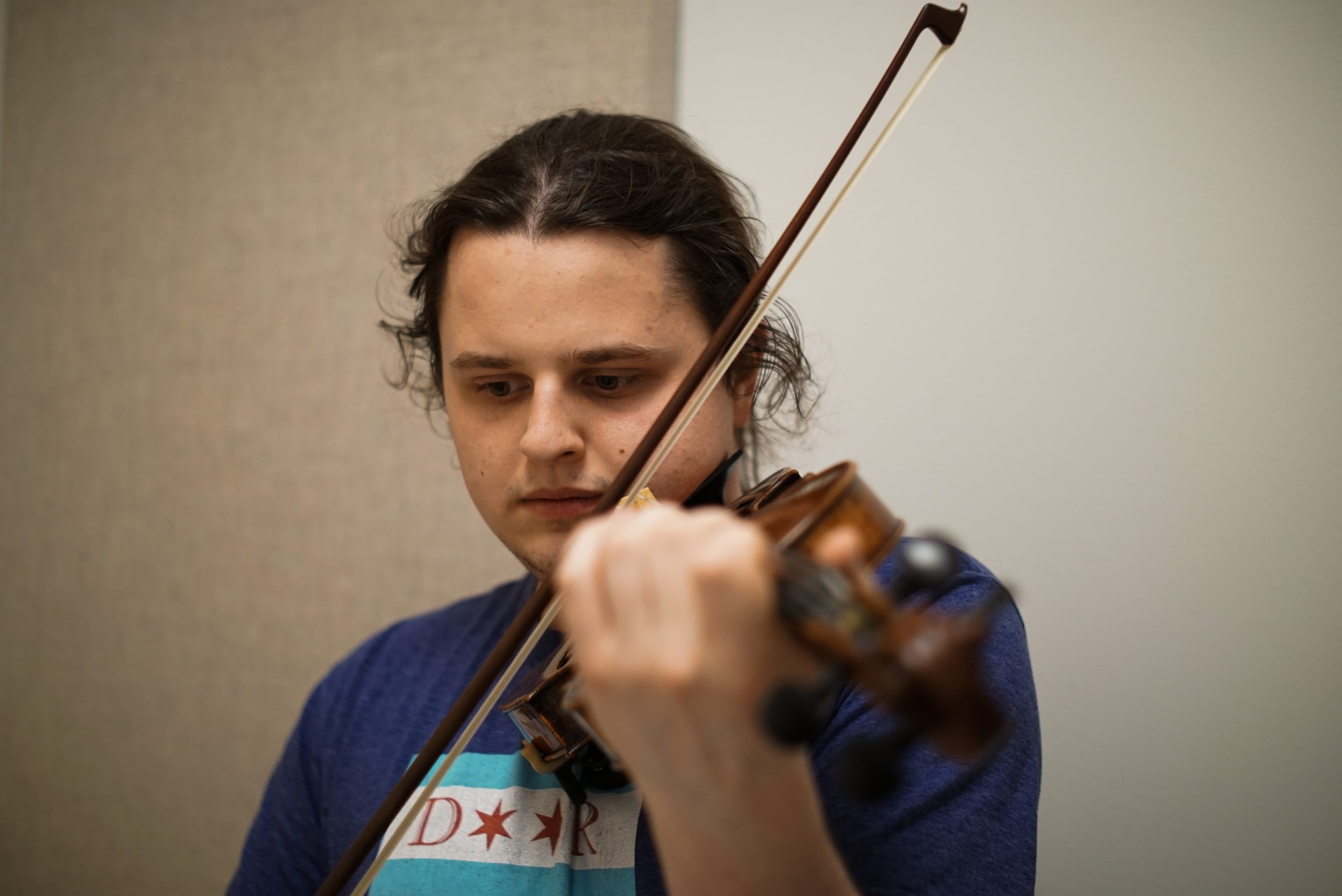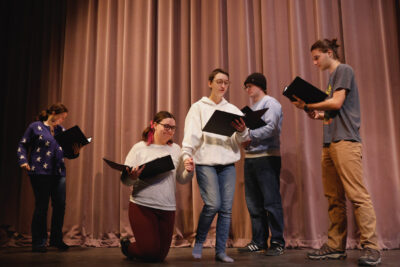As music students prepare for their end-of-the-year recitals, students and professors share valuable pre-performance advice. All recitals will take place in Rieth Recital Hall.
Ainslee Zou (cello), senior music and biochemistry major:
I have my senior thesis defense for my biochemistry major before my senior recital. Although there’s a lot of stress surrounding those things, I’m trying to think of both of these things as a culmination and a celebration of my achievements.
(Zou’s senior recital will take place April 3 at 7:30 p.m.)
Bohan Lin (violin), senior music and business major:
Practice. Be humble before the performance and be assuringly confident during the performance.
(Lin’s senior recital will take place April 8 at 7:30 p.m.)
Katy Thornthwaite (voice), senior music education major:
Starting a consistent practicing schedule and sticking to it. Any practice is better than no practice. Even though it might not have been as long or focused as I wanted it to be, I still came here and did something.
(Thornthwaite’s senior recital will take place April 10 at 4 p.m.)
Joel Yoder (violin), senior biochemistry major:
Listening to multiple recordings helps with stylistic and artistic interpretations. Performance pieces are big undertakings so don’t just run the piece repeatedly, find those six measures you’re stuck with and go through them with different practice methods. Focus your energy on what needs it the most and whatever happens happens.
(Yoder’s senior recital will take place April 12 at 7:30 p.m.)
Priscilla Clara Tanujaya (piano), senior music and art major:
Just practice.
Well, don’t over practice though.
(Tanujaya’s senior recital will take place April 22 at 7:30 p.m.)
Mariah Kaufman (piano), senior music education major:
Aside from practicing, really studying the different sections of the piece (such as phrases, themes, and forms) is helpful. Learning sections in chunks and having different starting points also helps.
(Kaufman’s senior recital will take place April 26 at 7:30 p.m.)
Pete Tacü (piano), senior music major:
I think resting is important. Even if you’re working all the time, if you don’t get rest your brain has limitations. Rest is a part of learning and a part of preparation.
(Tacü’s senior recital will take place April 27 at 7:30 p.m.)
Ana Neufeld Weaver (piano), sophomore music education major:
I think through what I want to express which helps to put the music into a framework. Also, I try to play through the piece enough so that I feel solid and can practice the musical aspects of a piece. Sometimes I turn off the lights and play in the dark. Creating an atmosphere that feels calmer or more like the style of the piece helps me to clearly listen to the piece.
(Neufeld Weaver’s sophomore recital will take place April 1 at 12 p.m.)
Sofia Sanchez (violin), sophomore music education major:
Having checkpoints for where you want to be by the end of the week really helps. When I’m not in the mood to practice physically, I also do mental practice by listening to recordings and reviewing fingerings. Not being on your phone as much. I usually put it away in my backpack because it’s such a huge distraction. Overall, it all comes down to how willing you are to prepare.
(Sanchez’s sophomore recital will take place April 8 at 12 p.m.)
Saige Lind (violin), sophomore graphic design major and music minor:
Being intentional about practicing and thinking about practice strategies that are actually effective and not just playing through a piece. Just take a few deep breaths and remember that it’s all going to be okay.
(Lind’s sophomore recital will take place April 8 at 12 p.m.)
Hannah Lehman (piano), sophomore music education major:
Take it into perspective: while it’s important there are bigger things in life while I’m going to my best, it’s also life, if it doesn’t go perfectly, life goes on. It is working towards the recital and the experience that counts rather than what happens during the actual performance.
(Lehman’s sophomore recital will take place April 22 at 12 p.m.)
Dr. Luke Norell, CSA piano program director and piano instructor:
Probably slow practice. Students tend not to practice slow enough with a metronome. The closer you get to the performance, practice endurance by playing through your entire program.
Dr. Scott Hochstetler, professor of music and director of Vox Profundi and Chamber Choir:
Memorizing the lyrics is a very big thing for vocalists. Something that helps me with that is writing out the words on a sheet of paper until I can do it fluidly and know it as well as poetry. It separates the music and the lyrics and helps to mentally know the piece along with muscle memory.
Dr. Roz. H. Woll, professor of music and director of Voices of the Earth:
Being clear about what I want to say musically and breaking the steps down to small steps to get there. Structuring thoughtful repetitions until one doesn’t have to have to think about it anymore. It helps with muscle memory and internalizing the music.
Brian Mast, executive director and GCSO conductor:
I always eat a banana. It’s part ritual but the potassium helps calm the nerves. I also try to take quiet time. I’ll go back into the dressing room with scores, think through things, look through things, and take a moment to focus.
Dr. Matthew Hill, professor of music:
Consistent preparation. Realizing that you’re not making a recording. Practice performing for friends and making [self]-recordings. Always make your aim to be expressive of the intentions of the music and your own musical soul.



